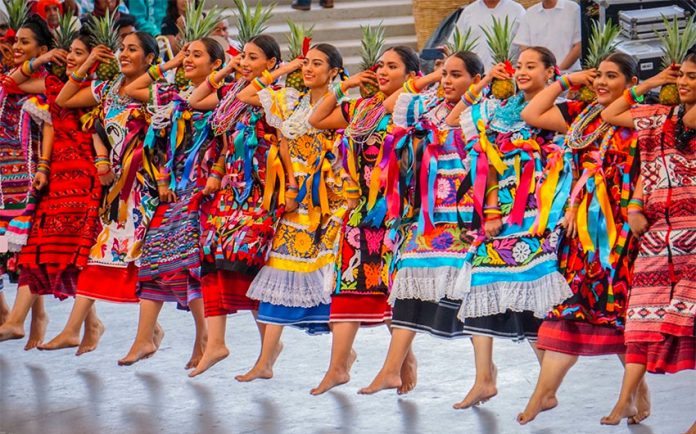The Guelaguetza festival in Oaxaca will be canceled for a second consecutive year due to ongoing concerns about the spread of coronavirus.
The festival, which normally takes place in July each year, brings the indigenous peoples of Oaxaca together to showcase their heritage and traditions in the form of intricate traditional garments, dances, music and food. It has been described as the largest ethnic festival in Latin America, and draws domestic and international tourists.
Oaxaca first went green on the Covid-19 stoplight map in April, and cases have been on the decrease. In total, 47,780 people in Oaxaca have been affected by the disease, resulting in 3,825 deaths. The state currently has 223 confirmed cases.
Governor Alejandro Murat confirmed at a press conference that the event would not go ahead. “The priority of my government is the lives of the citizens of Oaxaca,” he said.
The word Guelaguetza is of Zapotec origin, and has been interpreted to mean the “reciprocal exchanges of gifts and services.” The festivity is also known as Lunes del Cerro (Mondays on the Hill).
With reports from Infobae and El Universal
